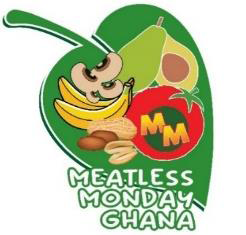The International Agency on Cancer Research Global Cancer Observatory in June 2021 reported that breast cancer accounted for 31.8% of cancer incidence in Ghana. This certainly is not good for a country already burdened with various forms of communicable and non-communicable illnesses.
Meatless Monday Ghana therefore joins the chorus of the Breast Cancer Awareness Month of October to respond to two critical questions concerning breast cancer.
- What are the recognized potential risk factors we should care about?
- Can reducing meat consumption help reduce the risk of breast cancer?

The Risk Factors
The risk of developing breast cancer is extremely low in young women and women but increases with age. In both sexes, the risk of breast cancer becomes significant from the age of sixties upwards. Here however is a list of known potential risk factors:

| Female | Male |
|---|---|
- Having benign (non-cancerous) breastdisease – Genetics – breast cancer in the family – Early puberty/menstruation – before the age of 11 – Late menopause – after age 54 – Having a first child late in life – Having no or few children – Not breast-feeding long term – Exposure to radiation – High dietary fat intake – Overweight and obesity – particularly for postmenopausal women – Moderate to heavy consumption of alcohol | – Hormone therapy for prostate cancer or medicines containing estrogen – Family history of breast cancer – Klinefelter syndrome. This genetic syndrome occurs when males are born with more than one copy of the X chromosome – Liver disease. Certain conditions, such as cirrhosis of the liver can change the balance of hormones in the body – Obesity. Obesity is linked with higher levels of estrogen in the body and increases the risk of male breast cancer – Testicle disease or surgery. Having inflamed testicles, called orchitis, or surgery to remove a testicle, called orchiectomy, can increase the risk of male breast cancer |
In addition to these risk factors, some studies suggest chemicals such as persistent organic pollutants called polychlorinated biphenyls (PCBs) which do not break down easily and are generally present at low concentrations in most foods, especially fat-containing foods such as milk, oily fish and meat could be blamed. Polycyclic aromatic hydrocarbons (PAHs) may also be responsible. These chemicals are commonly found in air pollutants produced from vehicle exhausts. Additionally, organic solvents that are commonly used in everyday items such as detergents, dry cleaning, paint thinners, nail polish removers, glue solvents and perfumes may be involved in the occurrence of breast cancers.
Meatless Monday and Breast Cancer Prevention
The World Health Organization (WHO) states that diet – the type of food we consume accounts for around a third of all cancers in western countries and a fifth of cancers in developing countries. In support of this view, the World Cancer Research Fund states that the incidence of cancer throughout the world could be reduced by up to 40 per cent by making dietary and lifestyle changes alone.
Researchers from Harvard Medical School looked at the diets of over 90,000 premenopausal women over 12 years. They found that those who ate more than one-and-a-half servings of red meat a day (the equivalent of a sausage and a burger) almost doubled their risk of ER-positive breast cancer. This, and other research, indicates that a high red meat intake can cause breast cancer. A study led by Dr. Sheila Bingham of the Dunn Human Nutrition Unit in Cambridge (July 2006) revealed that women who ate the most saturated animal fat (found mainly in whole milk, butter, meat, cheese, cakes and biscuits) were almost twice as likely to develop breast cancer as those who ate the least.
MESSAGE OF THE WEEK
TO SAVE YOURSELF FROM PAIN AND DEATH FROM BREAST CANCER AVOID RED MEAT AND DAIRY PRODUCTS AT LEAST ONE DAY IN A WEEK TO START WITH
Reduce meat consumption and eat more plant-based foods on Mondays for a healthier life.
Save your Life-Save the Environment!





